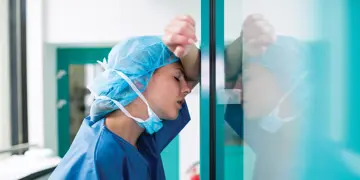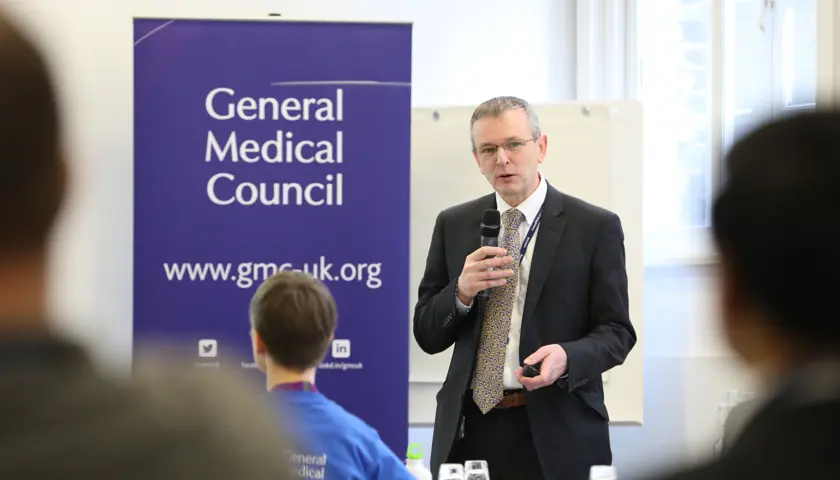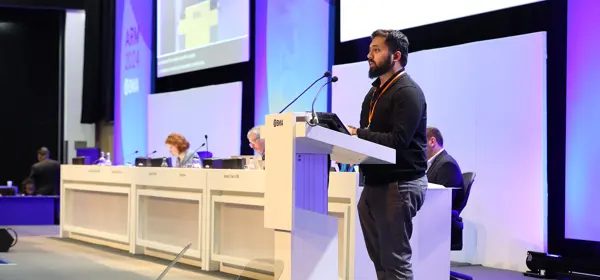
Leadership development opportunities diminish
Junior doctors face burnout and lagging career potential, survey finds
Doctors in training face a rising struggle to develop their leadership skills amid a continuing crisis in staff burnout, a GMC report reveals.
Junior (resident) doctors across almost all medical specialties see their opportunities for building leadership skills diminish, according to the findings of the latest National Training Survey, published today.
The number of doctors participating in the survey who strongly agree or agree they have had the opportunity to develop ‘leadership skills relevant to my stage of training’, stands at 63 per cent, having shrunk by 6 percentage points in two years.
The survey also reveals 40 per cent of doctors in training report feeling burnt out because of their work, with 34 per cent claiming they feel frustrated by their work while 52 per cent said it left them emotionally exhausted to a high or very high degree.
The survey finds 63 per cent of doctors in training and 50 per cent of doctors in trainer roles were judged to be at a high or moderate risk of burnout, with these figures having been 43 per cent and 41 per cent respectively in 2020.
Responding to the findings, BMA workforce lead Latifa Patel said that, despite signs of ‘slight improvement’ when compared with last year’s survey, burnout remained a significant area of concern for the medical workforce.
She said failure to get to grips with workplace pressures threatened to undermine plans proposed by the previous government to expand the medical workforce as set out under the NHS Long Term Workforce Plan.
She said: ‘Today’s survey of doctors in training and their trainers shows in stark detail the challenge underlying the Government’s plans to expand the medical workforce.
‘While some of these trends show slight improvement, the overall picture is that postgraduate training is still in a troubling place. If not addressed now, plans to provide the future expanded workforce that we need risks foundering on the rocks of a burnt-out, under-developed and over-stretched trainee cohort.
‘Half of the doctors we rely on to train future doctors, whether in medical school or working in hospitals or community settings, continue to show a high risk of burnout. Over a fifth of those they train similarly report being at high risk of burning out.
‘This is hardly surprising given the state of the health service but gives a warning to the Government that the training workforce will struggle to accommodate large numbers of new trainees without funding the medical educators and facilities required to realise those promises.’
Dr Patel added: ‘It is also concerning to see a decline since 2022 (69% to 63%) in the proportion of trainees agreeing their posts gave them opportunities to develop their leadership skills.
‘Doctors across the country know that, as the pressures on the health service mount, the opportunity to spend time developing each individual as a future leader is often compromised. A future expanded workforce will need leaders and the warning signs are there that these are not being given room to emerge in the present.’
In its report, the GMC has said a slump in opportunities for developing leadership skills across successive years was concerning, adding that supporting the development of these abilities among medical staff was ‘vital to the future sustainability of the health service and patient care’.
For planned expansions to the workforce to succeed, the GMC’s director of education and standards Colin Melville warned the number of medical educators and the support given to them would need to be increased.
He said: ‘These data show there are clear signs of strain. This will only intensify as the number of medical students grows, and as those students go on to join the workforce. Employers and workforce planners must look ahead and make sure educators have the protected time and support they need to fulfil their important roles.’




